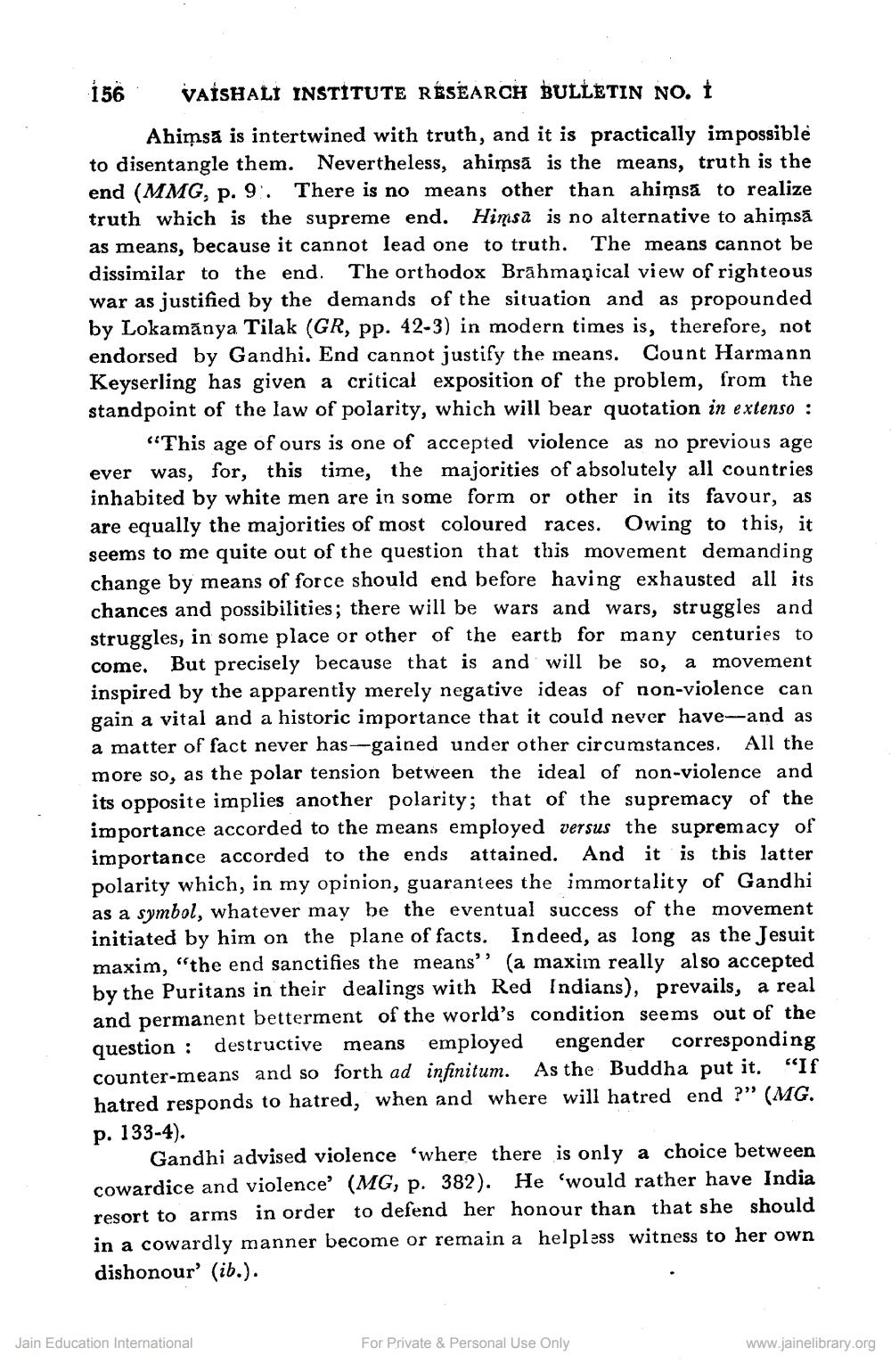________________
156
VAISHALI INSTITUTE RÉSEARCH BULLETIN NO. 1
Ahimsa is intertwined with truth, and it is practically impossible to disentangle them. Nevertheless, ahimsā is the means, truth is the end (MMG, p. 9. There is no means other than ahimsă to realize truth which is the supreme end. Himsă is no alternative to ahiņsā as means, because it cannot lead one to truth. The means cannot be dissimilar to the end. The orthodox Brāhmanical view of righteous war as justified by the demands of the situation and as propounded by Lokamānya Tilak (GR, pp. 42-3) in modern times is, therefore, not endorsed by Gandhi. End cannot justify the means. Count Harmann Keyserling has given a critical exposition of the problem, from the standpoint of the law of polarity, which will bear quotation in extenso :
"This age of ours is one of accepted violence as no previous age ever was, for, this time, the majorities of absolutely all countries inhabited by white men are in some form or other in its favour, as are equally the majorities of most coloured races. Owing to this, it seems to me quite out of the question that this movement demanding change by means of force should end before having exhausted all its chances and possibilities; there will be wars and wars, struggles and struggles, in some place or other of the earth for many centuries to come. But precisely because that is and will be so, a movement inspired by the apparently merely negative ideas of non-violence can gain a vital and a historic importance that it could never have--and as a matter of fact never has--gained under other circumstances. All the more so, as the polar tension between the ideal of non-violence and its opposite implies another polarity; that of the supremacy of the importance accorded to the means employed versus the supremacy of importance accorded to the ends attained. And it is this latter polarity which, in my opinion, guarantees the immortality of Gandhi as a symbol, whatever may be the eventual success of the movement initiated by him on the plane of facts. Indeed, as long as the Jesuit maxim, “the end sanctifies the means'' (a maxim really also accepted by the Puritans in their dealings with Red Indians), prevails, a real and permanent betterment of the world's condition seems out of the question : destructive means employed engender corresponding counter-means and so forth ad infinitum. As the Buddha put it. "If hatred responds to hatred, when and where will hatred end ?" (MG. p. 133-4).
Gandhi advised violence 'where there is only a choice between cowardice and violence' (MG, p. 382). He 'would rather have India resort to arms in order to defend her honour than that she should in a cowardly manner become or remain a helpless witness to her own dishonour' (ib.).
Jain Education International
For Private & Personal Use Only
www.jainelibrary.org




